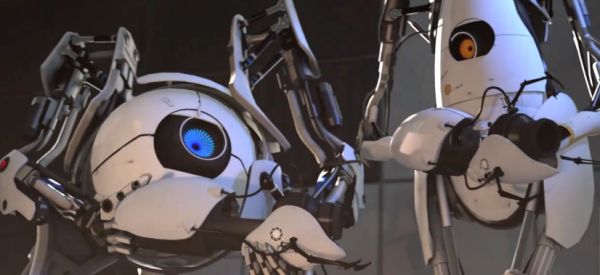
The first time I ever played Portal was damn near magical. Each room I walked into held promise of some diabolical new assault on both my brain and the laws of physics, but I made them look like child’s play. At the time, I was certain it proved I was a genius with an IQ so huge that even my bulging genius brain couldn’t count that high. Of course, I soon came to find out that everyone experienced Portal that way. So I wasn’t a genius. But the puzzle designers at Valve were.
To this day, Portal stands as the most masterful example of invisibly intuitive teaching I’ve ever discovered. It slowly builds upon itself – sneaking new techniques into your repertoire until you’re snoozing through puzzles that would’ve short-circuited your synapses maybe 20 minutes earlier. Is it a fit for classrooms, though? My first inclination would be to think not. I mean, it’s not exactly a hyper-accurate physics simulation – even with science jokes making up the bulk of both Portal 1 and 2′s brilliantly witty dialogue. That, however, is precisely the point, according to Valve director of education Leslie Redd and designer Yasser Malaika. It’s how Valve games teach – not what they’re teaching – that could help save a rusty, way-behind-the-times education system.
